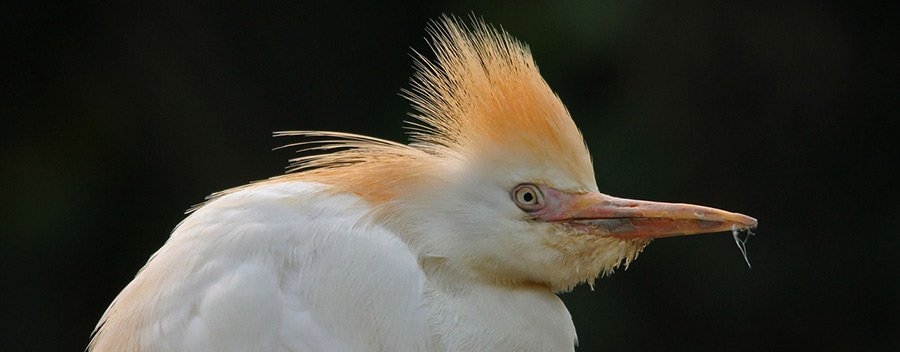Public Programs

Cattle Egret

Meetings Are Free
and open to the public
2:00 p.m.
the 2nd Sunday of each month
September to March
IFAS Extension Education Building
University of Florida/IFAS Extension Seminole County
250 W. County Home Rd. (off 17/92)
Sanford, FL 32773

2024/2025 Programs
September 8, 2024
Florida Black Bears
A representative from Florida Fish and Wildlife Conservation Commission (FWC), will share facts about the life cycles and behaviors of Florida black bears. Learn the best ways to both avoid interaction with bears and appreciate them safely from a distance. Keeping them wild and away from human use areas is a responsibility we all must share.
October 8, 2024
Big Sit at Lake Jesup Park
This event replaces our regular monthly meeting. This is an annual, international event hosted by New Haven (Connecticut) Bird Club. They compile the count data. We sit inside a circle and count all the bird species we see or hear. Tent available for shade. All levels and ages of birders are welcome. Come for an hour or two or for the entire time. Bring your own binoculars, chair, water, and snacks.
7:00 to 11:00 am – Lake Jesup Park
5951 Sanford Avenue, Sanford, FL
Accessible parking space. No restrooms.
We welcome all those who would like to enjoy time in nature. This gathering is accessible for all, including those who have a disability, persons with a mobility challenge, blind or low vision, deaf or hard of hearing, persons who are neurodivergent or persons with any other intellectual, developmental, or physical disability or concern.
Website: gis.audubon.org/birdability
Coordinator: Leslie Martin woodstork.martin@gmail.com
November 10, 2024
Eagles and the EagleWatch Program
Shawnlei Breeding, Audubon EagleWatch Program Manager, will share her extensive knowledge of this species that has come back from near extinction. She will provide many fun facts about eagles and their life cycle in Florida. Shawnlei trains volunteers to monitor Bald Eagle nests in Florida. Volunteers collect data on nesting activity from October to May. If you would like to become an Eagle Watcher, learn more at https://cbop.audubon.org/conservation/about-eaglewatch-program
December 8, 2024
Raptor Feathers by Dianna Flynt
Dianna is recently retired from the Audubon Center for Birds of Prey where she was the expert on injury assessment, treatment, and rehabilitation of over 700 raptors annually. Understanding how critical healthy feathers are to a raptor is just one aspect of the rehabilitation process. Dianna will share with us all features of feathers including function, maintenance, and the growth process. She will also include feather identification and reading the health of a bird by its feather condition. Lastly, Dianna will cover proper care of our feathered friends while in captivity which will include imping or feather repair.
January 12, 2025
Wekiva Wild and Scenic River
In October 2000, the Wekiva River, Wekiwa Springs Run, Rock Springs Run and Black Water Creek were designated by the US Congress as a National Wild and Scenic River. River Ambassador Ashley Konon will explain what this means to Floridians for river conservation and recreational opportunities like birding on kayaks. She will talk about her role as River Ambassador and explain what agencies are involved in the management of the river. Ashley will also describe another project she leads, the Dragonfly Mercury Project. Each year volunteers collect juvenile dragonfly nymphs or larvae at four sites around the Wekiva River System.
February 9, 2025
The Road to Recovery: 25 Years of Red-cockaded Woodpecker Management at Hal Scott Regional Preserve and Park
Graham Williams is St. Johns River Water Management District’s south-central region land manager. One of those properties is Hal Scott Regional Preserve and Park, home to a population of the federally endangered red-cockaded woodpeckers (RCWs). Graham will explain how the population at Hal Scott Preserve is monitored and summarize the work that has been done to recover this population from the brink of extirpation. He will include facts about RCW biology such as lifespan and habitat requirements. These birds are the only woodpecker in North America that live exclusively in cavities drilled into living, old-growth pines, especially longleaf pines. Their main threat is loss of habitat. The longleaf pine was extensively logged in the late 1800’s and then land clear cut for development and agriculture. Only a small fraction of old-growth longleaf remains across its historic range.
March 9, 2025
Swallow-tailed Kites
Ken Meyer, Executive Director of Avian Research and Conservation Institute (ARCI), will discuss the life cycle and habitat needs of Swallow-tailed Kites. He will share the latest research on tracking them during their long migration and how you can help with this research. Ken received his Ph.D. in Zoology from the University of North Carolina, Chapel Hill, in 1987. Since 1996, he has served as an adjunct Associate Professor in the University of Florida’s Department of Wildlife Ecology and Conservation. Ken co-founded Avian Research and Conservation Institute (ARCI) in Gainesville, Florida, in 1997. During his 38 years of conducting field research and producing management and conservation plans, Ken and his team have studied the behavior and ecology of 16 species of birds of conservation concern from eastern Canada to Brazil.
Learn more about ARCI at https://www.arcinst.org/